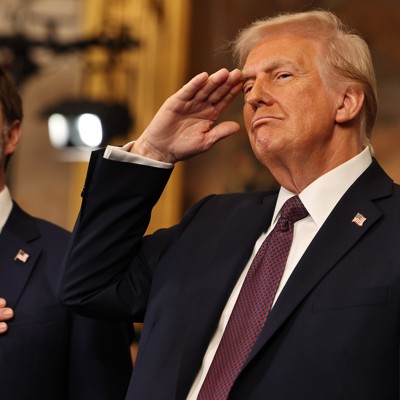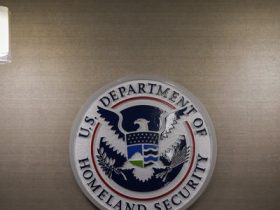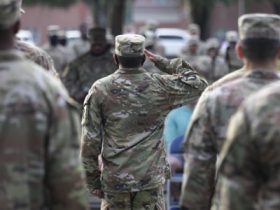Updated: Jan. 20, 11:52 p.m. ET.
President Donald Trump declared a national emergency at the southern border and vowed to designate some drug cartels and gangs as foreign terrorist organizations, unlocking new authorities for dealing with migrants and transnational criminal organizations, including possible military action—and new risks as well.
Earlier on Monday, a spokesperson for the new administration gave reporters a bit more detail. The Venezuela-based gang Tren de Aragua and El Salvador-based MS-13 would be named FTOs, the spokesperson said.
The designation enables the Justice Department to pursue individuals suspected of providing “material support” to that group. The department has used such a declaration to go after U.S. residents involved with ISIS, including last month’s arrest of Alexander Justin White as he boarded an overseas flight.
The designation also allows the government to use military intelligence and other capabilities to more deeply surveil the groups, its members, and its material supporters.
The official said a new homeland security task force would carry out related orders and actions inside the United States.
The shape and scope of any military action would be up to the defense secretary, the official said.
But late Monday, a reporter asked the new president whether he would consider sending U.S. special operations forces to Mexico to “take them out?”
Trump responded: “Could happen. Stranger things have happened.”
The U.S. military has taken past action against al-Qaida, Abu Sayyaf, ISIS, and other FTO-designated groups.
“The president and his team today will immediately prioritize tackling the national security and public safety threats that have resulted from our open border,” the spokesperson said.
The U.S. border has not technically been open since 1924.
Designating drug cartels as foreign terrorist operations
The idea of designating drug cartels as terrorist organizations has been floating around Washington for years. In February 2023, 21 states’ attorneys general called on the Biden administration to make the designation. In December of that year, Rep. Chip Roy, R-Texas, introduced a bill to do it.
Some national-security experts and officials have said designating drug cartels as terrorist organizations would have minimal benefits while presenting legal complications, hurting international relations, and possibly affecting human rights.
María Calderón, a program associate for the Wilson Center’s Mexico Institute, wrote last February that while designating drug cartels would bring expanded authorities, heightened global awareness, and new opportunities to work with other militaries, it might simply drive the targeted groups to more brutal tactics against law enforcement or their rivals.
Calderón added that the new approach could strain relations with other countries, and even hurt U.S. citizens.
“The material support clauses open the door to prosecuting any person in the United States or subject to the jurisdiction of the United States if they knowingly provided ‘material support or resources’ to a designated FTO,” she wrote.
That leaves open the question of whether drug trafficking might be treated as material support for terrorism.
RAND’s Brian Michael Jenkins was blunter. Military action against drug cartels in Mexico could make a “terrible situation even worse,” Jenkins wrote in 2023.
“In response to attacks on their leadership and threats to their livelihood, any self-imposed constraints on attacking Americans will erode,” he wrote. “Drug cartels could easily turn into real terrorist organizations. Over 1 million U.S. expats live or work in Mexico. They and their firms could become targets for reprisals. With connections to gangs in the United States, terrorist attacks could occur here as well, provoking further American responses.”
Emergency declaration
The declaration of a national emergency will allow the U.S. to “deploy armed forces, erect physical barriers by directing DOD and DHS secretaries to finish the wall along the border, and allow for counter-UAS capabilities near the southern borders,” the administration official said Monday. “In addition, specifically, it directs the secretary of defense to deploy additional personnel to the border crisis, including members of the armed forces and the National Guard.”
About 2,500 troops—a mix of National Guard and Reserves—are currently serving at the southern border under an authorization approved by Defense Secretary Lloyd Austin last March, a Northern Command spokesperson told Defense One.
The declaration follows Trump’s previous deployments of troops to the border, and his efforts to complete a border wall.
A February 2021 GAO report found that the Defense Department had not fully evaluated the “effect on military readiness of providing support at the time the Secretary of Defense considered DHS’s requests.”
But Daniel Hokanson, the retired four-star chief of the National Guard Bureau, told reporters last June that the border deployments offered “no military training value,” and hurt readiness because Guardsmen had to spend additional time making up for lost training.
“That time, I think, would be better utilized building readiness to deter our adversaries,” Hokanson said.
David DiMolfetta contributed to this post.
Read the full article here








Leave a Reply